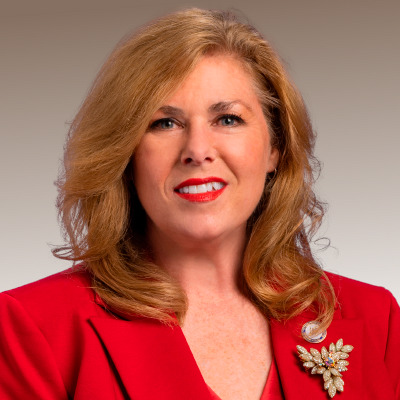A period for public comment would be required at governing body meetings in Tennessee under a bill set to be heard this week in House and Senate committees.
The bill calls for governing bodies, such as city and county legislative bodies, to “reserve a period for public comment to provide the public with the opportunity to comment on matters that are germane to the items on the agenda for the meeting.”
Times limits can be set for public comment

Elaine Davis, R-Knoxville.
The bill states that “(t)he governing body may put reasonable restrictions on the period for public comment, such as the length of the period, the number of speakers, and the length of time that each speaker will be allowed to provide comment. The governing body may require a person to give notice in advance of the desire to offer comments at a meeting. The governing body shall take all practicable steps to ensure that opposing viewpoints are represented fairly, if any.”
The bill also would require that the notice for the meeting “indicate the manner in which a person may indicate the person’s desire to provide public comment at the meeting.”
An amendment to the bill exempts meetings of governing bodies in which the board is “conducting a disciplinary hearing for a member of the governing body or a person whose profession or activities fall within the jurisdiction of the governing body.” This would apply to state boards that handle professional licenses and disciplinary proceedings, for example.
Rep. Elaine Davis, R-Knoxville, and Sen. Adam Lowe, R-Calhoun, are carrying the bill (HB448 / SB 551). It is No. 12 on the calendar for the House Public Service Subcommittee at 4:30 p.m. Tuesday, and No. 21 on the Senate State and Local Government Committee at 10:30 a.m. on Tuesday.
Unfair handling of public comment has led to First Amendment claims
The legislation would create a new section within the Open Meetings Act.
Several, but not all, states require public comment periods in public meetings and some local governing bodies in Tennessee have local rules or practices for public comment. Some limit the amount of time for each speaker.
Public comment periods can sometimes be contentious and have been the subject of First Amendment claims when the governing body or a chair of the governing body has silenced a person because of the viewpoint they express.
Like this:
Like Loading...
Related
Proposed law would require public comment periods
A period for public comment would be required at governing body meetings in Tennessee under a bill set to be heard this week in House and Senate committees.
The bill calls for governing bodies, such as city and county legislative bodies, to “reserve a period for public comment to provide the public with the opportunity to comment on matters that are germane to the items on the agenda for the meeting.”
Times limits can be set for public comment
Elaine Davis, R-Knoxville.
The bill states that “(t)he governing body may put reasonable restrictions on the period for public comment, such as the length of the period, the number of speakers, and the length of time that each speaker will be allowed to provide comment. The governing body may require a person to give notice in advance of the desire to offer comments at a meeting. The governing body shall take all practicable steps to ensure that opposing viewpoints are represented fairly, if any.”
The bill also would require that the notice for the meeting “indicate the manner in which a person may indicate the person’s desire to provide public comment at the meeting.”
An amendment to the bill exempts meetings of governing bodies in which the board is “conducting a disciplinary hearing for a member of the governing body or a person whose profession or activities fall within the jurisdiction of the governing body.” This would apply to state boards that handle professional licenses and disciplinary proceedings, for example.
Rep. Elaine Davis, R-Knoxville, and Sen. Adam Lowe, R-Calhoun, are carrying the bill (HB448 / SB 551). It is No. 12 on the calendar for the House Public Service Subcommittee at 4:30 p.m. Tuesday, and No. 21 on the Senate State and Local Government Committee at 10:30 a.m. on Tuesday.
Unfair handling of public comment has led to First Amendment claims
The legislation would create a new section within the Open Meetings Act.
Several, but not all, states require public comment periods in public meetings and some local governing bodies in Tennessee have local rules or practices for public comment. Some limit the amount of time for each speaker.
Public comment periods can sometimes be contentious and have been the subject of First Amendment claims when the governing body or a chair of the governing body has silenced a person because of the viewpoint they express.
Like this:
Related
We invite you to get involved. Donate and become a member! We rely on donations from people like you to fund our work. No matter how small, every donation counts.
About the Author: Deborah Fisher
Related Posts
‘Advisory board’ that would oversee Memphis school board would be exempt from Open Meetings Act
Comptroller’s Report: DA’s Conference has been violating Open Meetings law
Public university payments to student athletes to be confidential under proposed bill
Citizens should have access to clear agendas for all government body meetings
Share this:
Like this:
Related